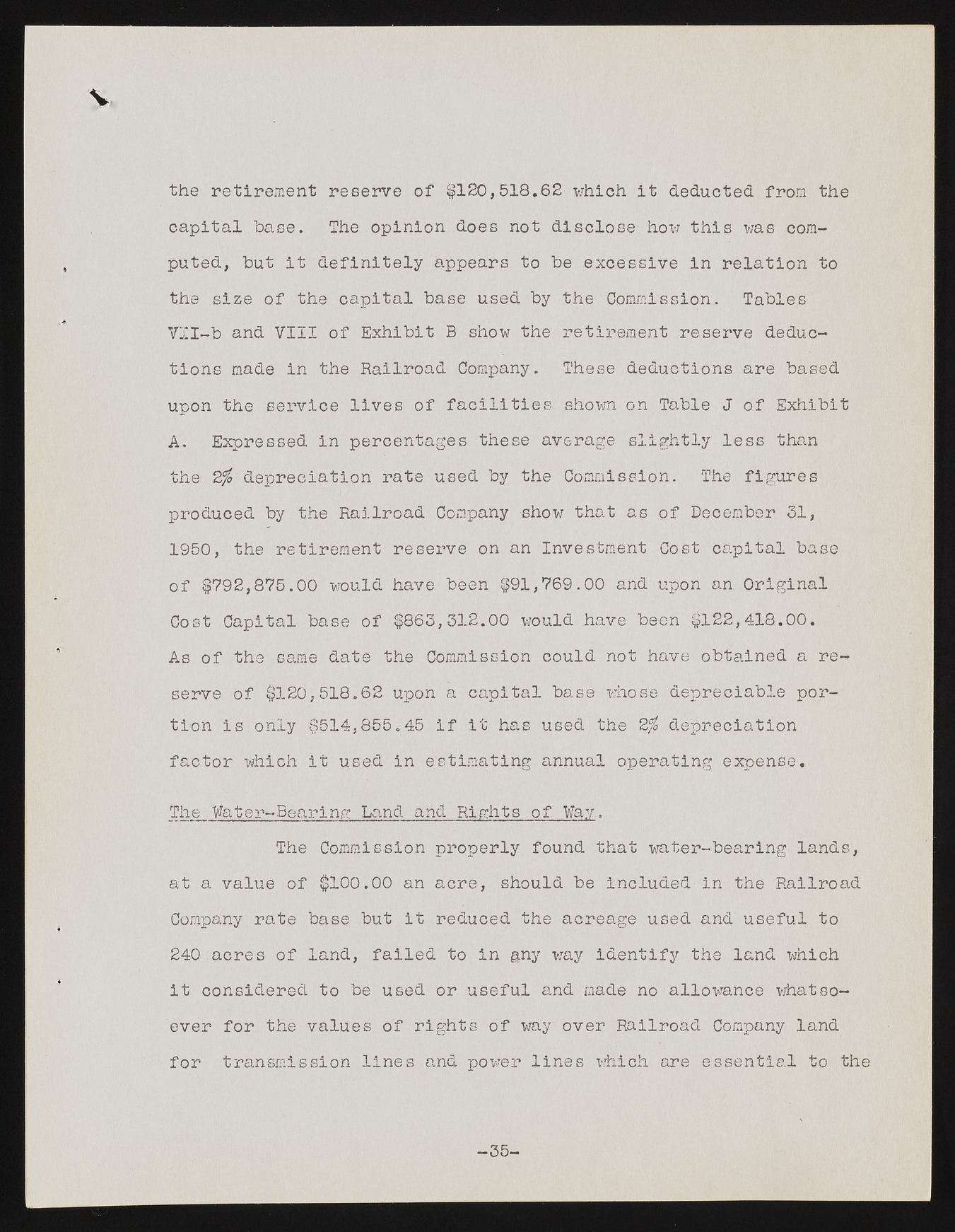Copyright & Fair-use Agreement
UNLV Special Collections provides copies of materials to facilitate private study, scholarship, or research. Material not in the public domain may be used according to fair use of copyrighted materials as defined by copyright law. Please cite us.
Please note that UNLV may not own the copyright to these materials and cannot provide permission to publish or distribute materials when UNLV is not the copyright holder. The user is solely responsible for determining the copyright status of materials and obtaining permission to use material from the copyright holder and for determining whether any permissions relating to any other rights are necessary for the intended use, and for obtaining all required permissions beyond that allowed by fair use.
Read more about our reproduction and use policy.
I agree.Information
Digital ID
Permalink
Details
Member of
More Info
Rights
Digital Provenance
Publisher
Transcription
V the retirement reserve of §120,518.62 which it deducted from the capital base. The opinion does not disclose how this was computed, but it definitely appears to be excessive in relation to the size of the capital base used by the Commission. Tables VXI-b and VIII of Exhibit B show the retirement reserve deductions made in the Railroad Company. These deductions are based upon the service lives of facilities shown on Table J of Exhibit A. Expressed in percentages these average slightly less than the 2% depreciation rate used by the Commission. The figures produced by the Railroad Company show that as of December 51, 1950, the retirement reserve on an Investment Cost capital base of §792,875.00 would have been §91,769.00 and upon an Original Cost Capital base of §863,512.00 would have been §122,418.00. As of the same date the Commission could not have obtained a reserve of §120,518.62 upon a capital base whose depreciable portion is only §514,855.45 if it has used the depreciation factor which it used in estimating annual operating expense. The Water-Bearinrc Land and Rights of Way. The Commission properly found that water-bearing lands, at a value of §100.00 an acre, should be included In the Railroad Company rate base but it reduced the acreage used and useful to 240 acres of land, failed to in any wTay identify the land which it considered to be used or useful and made no alloxiranee whatsoever for the values of rights of way over Railroad Company land for transmission lines and power lines which are essential to the -35-

